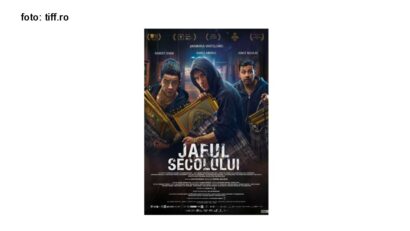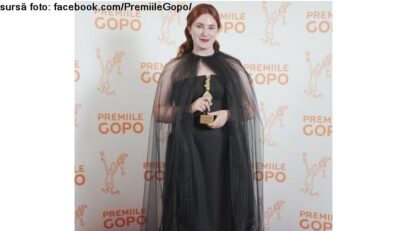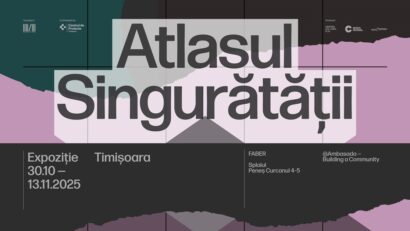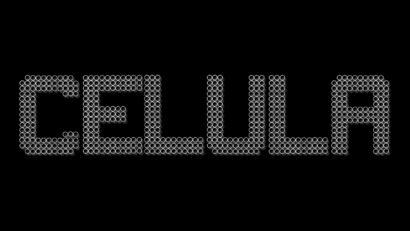“Between Revolutions” by Vlad Petri, at the Berlinale
The film directed will be presented in the Forum section of the Berlin Film Festival.
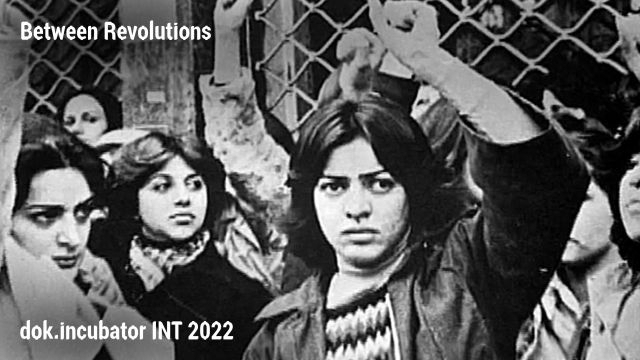
Corina Sabău, 25.02.2023, 14:00
Between Revolutions, the film directed by Vlad Petri, will be presented in the Forum section of the Berlin Film Festival, held over February 16-26. The film mirrors the lives and destinies of two women, Maria and Zahra, one from Romania, the other one from Iran, two friends and colleagues at the Bucharest University of Medicine in the 1970s. In 1979, when political change in Iran became possible, Zahra returned to her country, taking part in the revolution there. For the next 10 years, their only way of communicating was through letters. Framed by two revolutions, their words describe women’s struggle to be heard, societies undergoing radical change and a friendship that could not be broken. Director Vlad Petri used archive images and documents, but also elements of fiction, which led to the creation of a hybrid feature film, a mixture of documentary and fiction. For me it’s a film about the recent past, which resonates very strongly with the present reality. It is a film that presents a subjective history, seen by two women, the history of two countries and societies thousands of kilometres apart which experienced new political systems, where people were gradually crushed by repressive political systems. The film resonates with the protests of the past few months in Iran, where women have been fighting for their rights and for a just society, just as they did in 1979, says director Vlad Petri.
Vlad Petri: “I would start from what I said about the current protests in Iran. I actually started working on this film three years ago, at a time when there weren’t many protests under way. It is a coincidence that now, at the time of the films release, some of the most impressive protests in Iran since the Islamic Revolution of 1979, if not the most impressive protests in the entire Middle East, are under way. I also talk about the fact that the first revolution ever led by women is under way in Iran as we speak, which is incredible for that region. As for my interest in political topics, it’s true, I’m very interested in Eastern Europe and the Middle East, and Ive also travelled to Iran and other countries in the region. The discussions I had with my mother, who was a medical student and who told me about students from the Middle East who attended university courses in Romania, also played an important role. I was born in 1979, the year of the Islamic Revolution. Somehow, this story was built on several layers and I found connections, similarities, but also differences between the Islamic Revolution and the anti-communist Revolution of 1989 in Romania. And I found it somehow interesting to test this terrain and to discuss hopes, optimism, and the desire for radical change. Because both revolutions led to some radical changes, and I still think they are perhaps the most important revolutions of the last century.
The letters presented in the film are written by Lavinia Braniște and are inspired by letters from the archives of the former political police and the poems of two important writers from Romania and Iran – Nina Cassian and Forugh Farrokhzad. Writer Lavinia Braniște: When I started working on the project, Vlad had a clear story in mind, which also included an exchange of letters between the two main characters, so he gave me enough data. We didn’t know each other, so his proposal was a complete surprise for me, it was something that took me out of my comfort zone, so to say, because I had never worked on a project like this before. I was flattered and scared at the same time but I accepted his proposal with great, great joy. I had to go through quite a long period of documenting before I started writing, because the Islamic Revolution was a topic I knew almost nothing about. We were always in contact with each other and discussed a lot during every stage of the project. My mother also graduated from the university at the end of the 1970s, so I also knew some stories from her, related to that period. And I still have some memories myself from the 1980s, so I also had common points with Vlad and we built this story together, of which, at the end, only a little bit remained. But overall, working on the film was a continuous process and a very interesting experience.
The Romanian feature film Intre revoluții/Between Revolutions is one of the 28 titles selected for the main programme of the Forum section of the Berlin International Film Festival, from over 2,000 films from around the world. In the same section, Mammalia, Sebastian Mihăilescu’s debut in fiction film, was also selected. In fact, many filmmakers and many projects from Romania are participating in the Berlinale this year. Actress Judith State was selected in the European Shooting Stars program, and the Berlinale Talents Workshop, organized annually during the festival, hosts five young filmmakers: director and actress Alina Șerban, actress Ioana Chițu, distributor Oana Furdea, film critic Dora Leu and sound engineer Marian Bălan. Also, the Export Only project by producers Ada Solomon and Carla Fotea is present in the Berlinale Market, Spy/Master, an HBO series written by Adina Sădeanu was selected in the new Berlinale Series program, editor Cătălin Cristuțiu is on the jury for short films, and Radu Jude is in the jury of the official competition. (EE)

